Search
Did you mean: Theseus?
Search Results
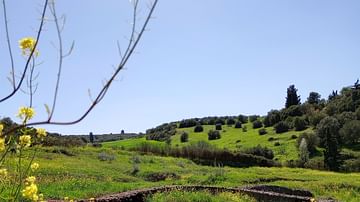
Image
The Sanctuary of the Kabeiroi, Thebes
The Kabeiroi sanctuary is located 8 km (4.97 miles) west of Thebes, Greece. The Kabeiroi were revered as vineyard and animal fertility guardians. The sanctuary's cult originated in the archaic period and lasted until late antiquity.
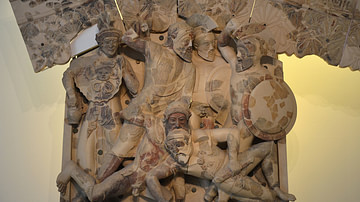
Image
Seven Against Thebes
High terracotta Etruscan relief depicting scenes from the myth of the Seven Against Thebes. It decorated the back of the temple of the sanctuary at Pyrgi, 470-460 BCE, National Etruscan Museum of Villa Giulia, Rome.
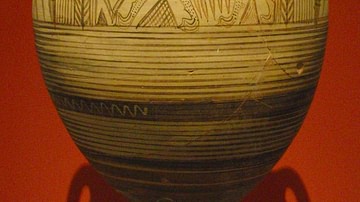
Image
Boeotian Pithos from Thebes
A Boeotian early orientalizing pithos-amphora depicting a lion, 670-660 BCE, Thebes. (National Archaeological Museum, Athens).

Image
Crates of Thebes by Giordano
Crates of Thebes by Luca Giordano, 1650 CE, Palazzo Barberini, Rome.
![Crates of Thebes [Painting]](https://www.worldhistory.org/img/c/p/360x202/2913.jpg?v=1732987687)
Image
Crates of Thebes [Painting]
A portrait of the Greek Cynic philosopher Crates of Thebes by an unknown painter from the circle of Domenico Feti.
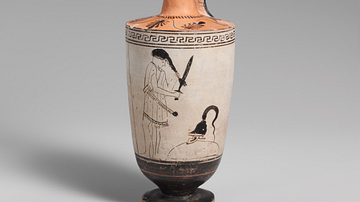
Image
Attic Oil Flask Depicting a Scene from Seven Against Thebes
This image of a young warrior cutting his hair before battle may reflect a scene in Seven against Thebes, a tragedy by Aeschylus. The seven heroes knew that only one of them would survive battle. Each cut a lock of his hair and tied it to...
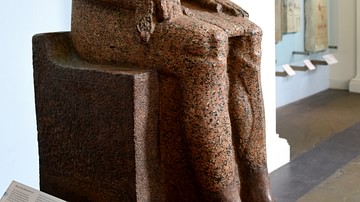
Definition
Second Intermediate Period of Egypt
The Second Intermediate Period (c. 1782 - c.1570 BCE) is the era following the Middle Kingdom of Egypt (2040-1782 BCE) and preceding the New Kingdom (1570-1069 BCE). As with all historical designations of the eras of Egyptian history, the...
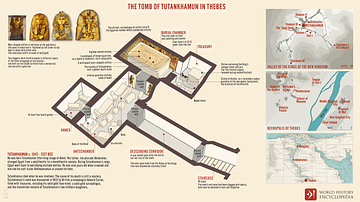
Image
The Tomb of Tutankhamun in Thebes
An infographic depicting the tomb layout and location of the Egyptian New Kingdom pharaoh Tutankhamun (c. 1345 - 1327 BCE). Tutankhamun died when he was nineteen and the cause of his death is still a mystery. His tomb was discovered relatively...
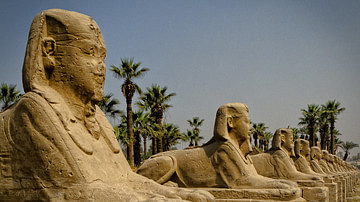
Image
Avenue of the Sphinxes, Thebes
The Avenue of the Sphinxes is a 3-km ancient processional route that once linked Luxor temple with the Temple of Mut at Karnak to the south. The avenue and sphinxes were built during the reign of Nectanebo I (380-363 BCE) who ruled during...

Image
Book of the Dead of Aaneru, Thebes
A detail from the Book of the Dead of Aaneru from Thebes, Third Intermediate Period of Egypt, 21st Dynasty, 1070-946 BCE.
Egyptian Museum, Turin.